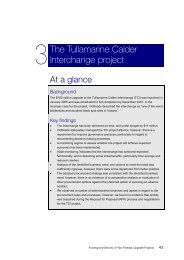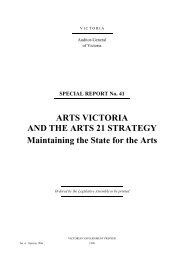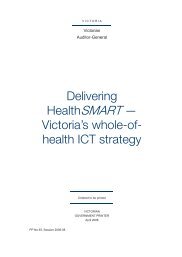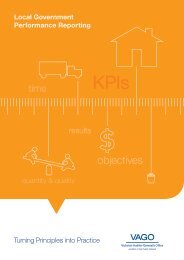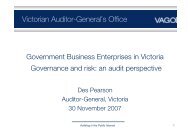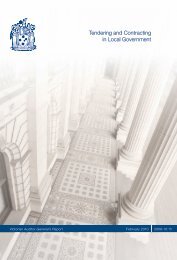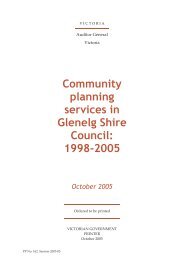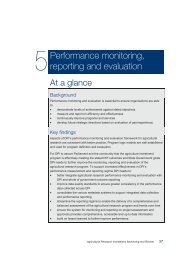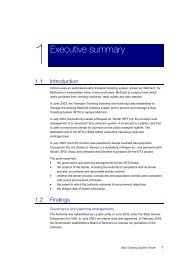New ticketing system tender
New ticketing system tender
New ticketing system tender
You also want an ePaper? Increase the reach of your titles
YUMPU automatically turns print PDFs into web optimized ePapers that Google loves.
Executive summary<br />
• shown more meaningfully the relative position of <strong>tender</strong>s<br />
• allowed the Authority to more clearly match the assigned rating to the<br />
evaluation narrative<br />
• given a clearer representation of the progress of <strong>tender</strong>s over time.<br />
While the NTS <strong>tender</strong> evaluation reports identified the areas where <strong>tender</strong>s did not<br />
meet the RFT requirements, the reports did not articulate which requirements were<br />
critical or threshold issues and which were not. For those requirements that were<br />
negotiable to some extent, this extent was not specified. The clear articulation of a<br />
maximum acceptable level of risk acceptance by government would have<br />
enabled the decision-makers to determine with more precision and confidence<br />
whether the departures from the RFT requirements were minor, or whether they<br />
were such that the desired solution could not be acquired within the budget<br />
without an unacceptable allocation of risk.<br />
Probity of the NTS <strong>tender</strong><br />
While flexible and innovative approaches to <strong>tender</strong>ing can enhance value for money<br />
for public procurers, the importance of probity is just as great in new types of <strong>tender</strong>ing<br />
as it is in traditional procurement processes.<br />
Due to the specialised nature of <strong>ticketing</strong> <strong>system</strong>s, it was highly likely that a number of<br />
Authority staff would have potential conflicts of interest from prior experience with<br />
organisations <strong>tender</strong>ing for the NTS project. The Probity Auditor identified more than<br />
30 staff and other individuals involved in the <strong>tender</strong> evaluation process who had<br />
potential conflicts of interest. Seven staff members and one consultant were rated as<br />
high risk. Most of the conflicts of interest resulted from previous work histories and/or<br />
shares in two companies included in consortia <strong>tender</strong>ing for the NTS.<br />
All shareholdings were disclosed to the Authority in conflict of interest statements<br />
signed by staff and consultants and were identified in the work undertaken by the NTS<br />
Probity Auditor. All of the declared shareholdings were modest and most were<br />
immaterial.<br />
The most significant shareholding of relevance to the <strong>tender</strong> was the CEO’s<br />
shareholding in Headstrong / James Martin & Co. The shareholding’s potential to<br />
damage community confidence in the <strong>tender</strong> was high. The Authority could have taken<br />
additional steps to address perceived conflicts in relation to the shareholding.<br />
Some senior Authority managers had shared work histories with a number of members<br />
of the <strong>tender</strong>ing consortia. These shared work histories and other relevant<br />
relationships were disclosed to the Authority. The Authority informed <strong>tender</strong>ers about<br />
those people in the Authority who had prior experience with <strong>tender</strong>ers.<br />
The Authority identified the conflicts of interest in a timely way. Audit found no evidence<br />
of corruption in the NTS <strong>tender</strong>, and no evidence that the conflicts of interest led to the<br />
unfair or biased treatment of particular <strong>tender</strong>ers or groups of <strong>tender</strong>ers. Nevertheless,<br />
the Authority could have taken additional steps to communicate to <strong>tender</strong>ers, the<br />
<strong>New</strong> Ticketing System Tender 5




